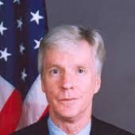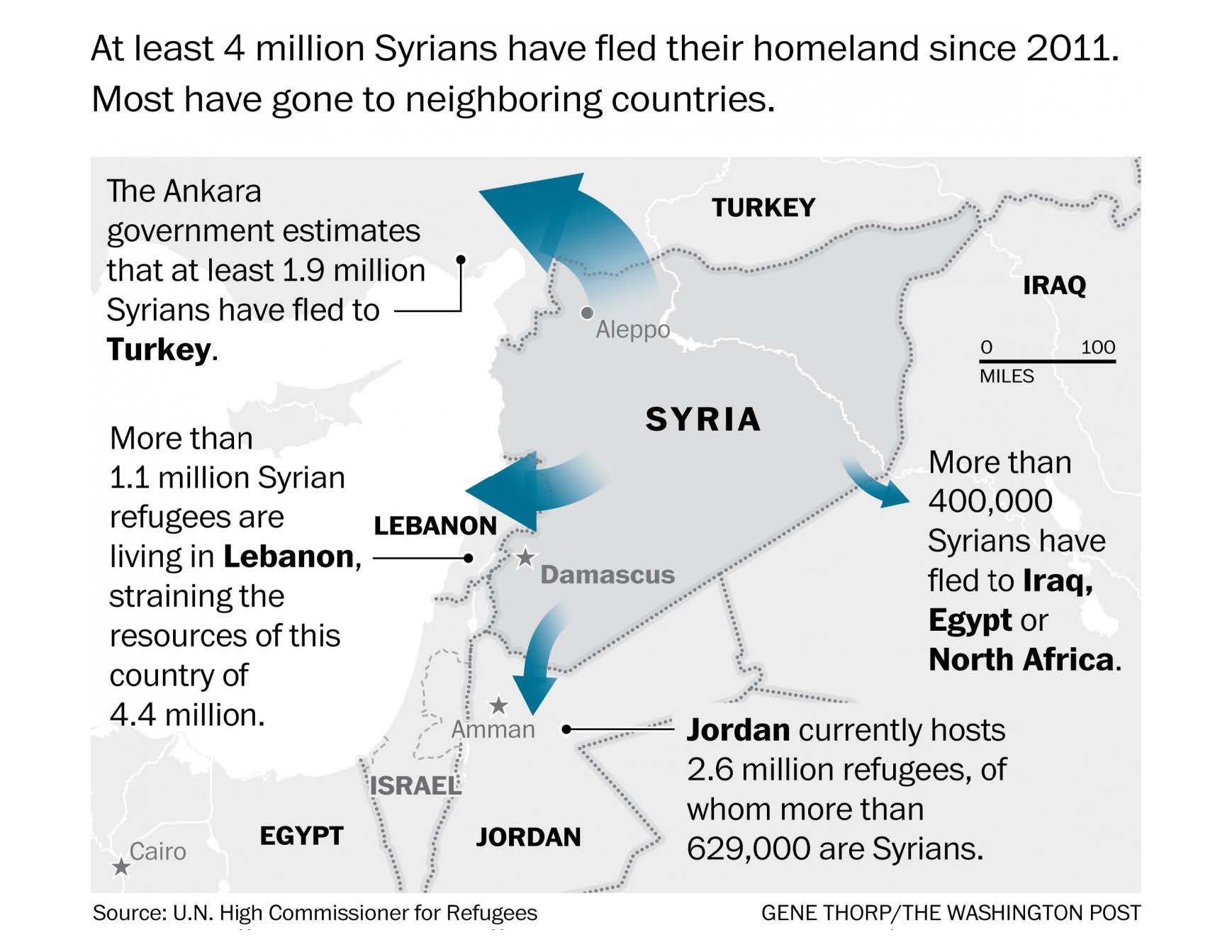Speaker

Ambassador Ryan C. Crocker
Dean of the George Bush School of Governance and Public Service
Texas A&M University
Moderator
Event Summary
On Thursday December 17th, 2015, the Arab Center Washington DC (ACW) held a briefing with Ambassador Ryan C. Crocker on the Syrian refugee crisis and the evolving U.S. policy. Ambassador Crocker is the Dean of the George Bush School of Governance and Public Service at Texas A&M University and former US Ambassador to Afghanistan, Iraq, Pakistan, Syria, Kuwait, and Lebanon.
The Syrian refugee crisis continues to fester and, while the US has agreed to admit a limited number of refugees, there is a growing resistance from the public, Congress, governors and presidential candidates out of fear that terrorists may infiltrate those seeking to escape the unrelenting inhumane situation in Syria. As the crisis features prominently across all platforms on a global scale, Arab Center Washington (ACW) invited former US Ambassador Ryan C. Crocker to share his insights on the nature, shortcomings and potential dangers of the apathetic U.S. policy toward this crisis.
With the continuing violence in Syria resulting in the displacement of half the country’s population of 22 million, the need for addressing the refugee crisis has become more urgent than ever. While the U.S. administration agreed to settle 10,000 Syrian refugees, public opposition in the U.S. has been rising especially following the attacks in Paris and San Bernardino. The U.S. policy debate regarding the Syrian refugees has been intensifying to the point of xenophobia particularly among republican presidential candidates. Recent public opinion surveys show 53-56% of Americans are opposed to accepting any Syrian refugees into the United States.
In the midst of such growing opposition and confusion, Ambassador Crocker did not only call for an assertive U.S. participation in the international efforts to resettle refugees but also emphasized the need for a proactive U.S. leadership to step up and manage the overall refugee crisis. In fact, the most recurrent highlight from the Ambassador’s speech is his plea to the Obama Administration to take a leadership role in this crisis. “What’s missing” he said, “is global leadership … There is only one nation that can exercise that leadership”. While Syria’s neighbors are carrying the bulk of the burden and eastern European countries struggle with a large influx of refugees, rich countries like the U.S. are yet to take significant actions. Ambassador Crocker called for resettling 100,000 Syrian refugees in the United States, which he considers a token response given the magnitude of the issue.
According to Crocker, this international tragedy, if left unmanaged, will only get much worse. “As bad as it is now, on its current trajectory, it’s going to be a whole lot worse in six months, in a year, in two years” he said. International aid agencies are running out of funding while the numbers of refugees and the need for aid continue to increase. According to Ambassador Crocker, the U.S. leadership is necessary both at home and abroad; to engage with the international community and lead the efforts to address the needs of the refugees and the challenges faced by the countries receiving them. While the “administration has the right orientation” with regard to admitting Syrian refugees, he said “the United States I’m very sad to say as an American, is not leading. We’re not even participating”.
The most significant opposition to the administration’s plan to take 10,000 refugees arises from the fear that ISIS members might infiltrate the pools of Syrians seeking refuge in the U.S. While the conflict between American values and American interests is sometimes intense, Ambassador Crocker insisted that “the Syrian refugee issue is not one of those instances of friction”. With regard to resettling refugees, American values and interest do not collide but coincide. As a nation of immigrants, the fundamental U.S. values engraved on the Statue of Liberty are those of welcoming “the tired, the poor, and the huddled masses yearning to breathe free”.
With regard to U.S. interests, Crocker stressed that refusing to settle Syrian refugees is likely to pose greater threats to the U.S. as it would feed into the ISIS narrative that “the Christian West led by the United States is out to destroy Islam”. In addition, he discussed the dangers of abandoning the Syrian refugees, as youth in refugee camps face increasingly difficult humanitarian conditions, and no access to education, employment, or hope. “In 10-20 years,” Crocker said, “we will see a highly radicalized Syrian refugee population because they will have no choice, the narrative will be: the West led by the United States turned its back on you”.
With regard to political efforts to end the violence in Syria, Ambassador Crocker was not optimistic but stressed the importance of establishing a no-fly zone, in combination with ground troops, in order to protect civilians and change the dynamics to make negotiations possible. In addition, the Ambassador called on the United States to take a firm stance not only in admitting Syrian refugees but also against the Assad regime’s slaughtering of Syrians. The refugee crisis cannot be resolved in isolation of the realities that caused it, including both ISIS and the Syrian regime. He concluded that “all it takes for evil to succeed is for the good to do nothing”.
To learn more about Ambassador Ryan Crocker Click Here
For congressional action on the Syrian refugee crisis Click Here (As of December 18, 2015)
To see quotes on the Syrian refugees Click Here


